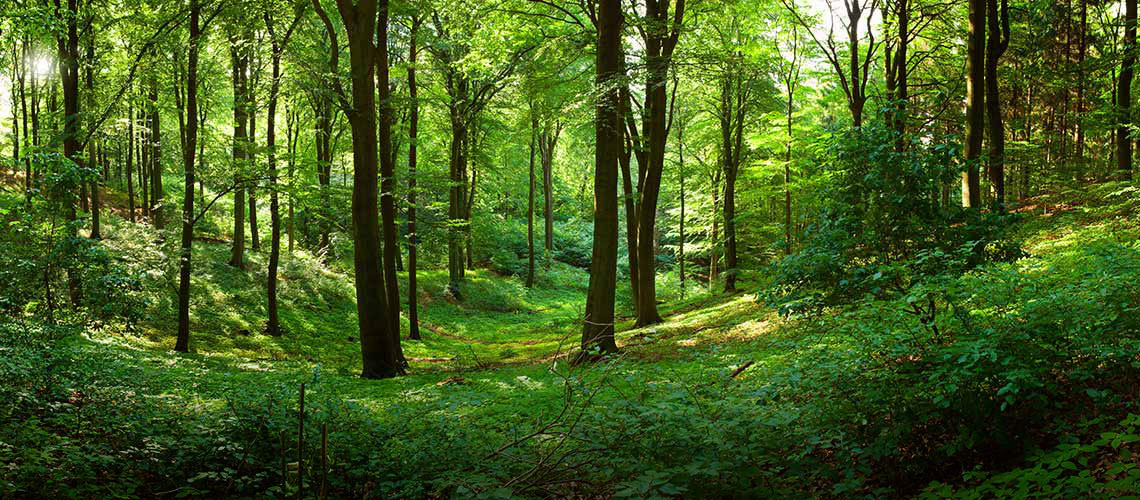Living in the country found to reduce the risk of death by 16% compared to city life
03/25/2017 / By Russel Davis

Living in the countryside, where trees and open spaces can be easily accessed, may help reduce the risk of certain diseases and premature death than being city-bound, according to a recent review. Researchers at the Institute for European Environmental Policy (IEEP) analyzed data from more than 200 academic studies on the beneficial effects of increased access to green space.
The analysis, commissioned by Friends of the Earth Europe, showed that people who lived in verdant regions had a death rate 16 percent lower than people living in urban areas. Researchers also found that living close to open fields and trees may reduce the risk of obesity and depression. Pregnant women who lived in areas with more trees and vegetation bore children with much healthier sizes, researchers noted. Increased opportunity for physical activity and less exposure to air pollution may explain the positive results of open, green spaces on human health, researchers added. The results of the analysis support previous findings that living in highly-industrialized urban areas could result in adverse health conditions. (RELATED: Learn more about off-grid living at OffGrid.news)
“The evidence is strong and growing that people and communities can only thrive when they have access to nature. We all need nature in our lives, it gives us freedom and helps us live healthily; yet deprived communities are routinely cut off from nature in their surroundings and it is suffocating for their well-being,” said Friends of the Earth Europe campaigner Robbie Blake.
IEEP director Patrick ten Brink lauded the cities of Oslo in Norway and Victoria-Gasteiz in Spain for their initiatives that aim to increase access to green spaces. “We should be inspired by this and work together so that all Europeans have nature within 300 metres of their homes in the next 10 years,” ten Brink said.
The power of the elements: Discover Colloidal Silver Mouthwash with quality, natural ingredients like Sangre de Drago sap, black walnut hulls, menthol crystals and more. Zero artificial sweeteners, colors or alcohol. Learn more at the Health Ranger Store and help support this news site.
Studies: More trees, open spaces mean better health
Health experts have long established a notion that living in areas that provide access to open green spaces provide significant health benefits. A study by Harvard University researchers revealed that people residing in urban jungles had a 12 percent higher mortality rate compared with those who live in areas with access to green spaces. Data on 110,000 women also showed that those who live in urbanized areas had increased odds of developing cancer and respiratory conditions. On the other hand, those who lived in the greenest areas had a 13 percent lower rate of cancer-related death, and a 34 percent lower rate of respiratory disease-related mortality.
Another study published in the journal Science revealed that patients recovering from gallbladder surgery who had bedside windows overlooking leafy trees had healed faster than those who did not have access to bedside windows. The researchers also found that patients who had access to bedside windows required fewer pain medications and had fewer post-surgical complications than those who only saw a brick wall.
Data from the Ontario Health Study also showed that a higher density of trees in a city block resulted in improved health perception among participant. This effect was comparable to perceiving certain positive situations such as an increase in annual personal income of $10,000, moving to an area with $10,000 higher median income or being seven years younger.
Researchers also found that having 11 more trees in a neighborhood resulted in reduced cardio-metabolic conditions. This was comparable to a raise in annual personal income of $20,000 and moving to a more affluent area with $20,000 higher median income or being 1.4 years younger. The findings were published in the journal Nature.
Another analysis published in BMC Public Health showed that walking or running in natural green spaces resulted in reduced anger, fatigue and depression as well as improved attention levels compared with doing so in a synthetic environment.
Sources:
Tagged Under: country life, country living, depression, obesity, premature death, trees




















